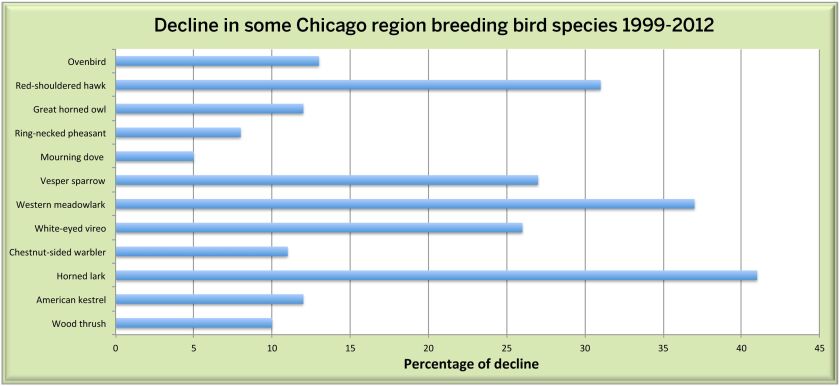Millions of birds migrate through the Chicago area each year along Lake Michigan’s shoreline, but fewer of them would make it through safely under a new Trump administration proposal.
Last week, the United States Fish and Wildlife Service, which is part of the U.S. Department of the Interior, proposed eliminating the Migratory Bird Treaty Act’s prohibition on killing migratory birds through unnecessary industrial activities. It’s a terrible move by the Trump administration, and it comes just months after news that North America has lost a quarter of its bird population in the last half century, or about 3 billion birds.
Under the administration’s proposal, industries wouldn’t be penalized for even the foreseeable and entirely avoidable deaths of huge numbers of birds. Essentially, the penalties would be triggered only when birds are killed on purpose.
That’s bad news for the roughly 300 species of migratory bird that fly through Illinois, including the songbirds, hawks, falcons, gulls, owls, terns shorebirds and waterfowl that have been migrating through Illinois and along Lake Michigan’s shoreline for eons.
Or, as Nat Miller, acting executive director of Audubon Great Lakes, said: “This is a bad time to be a bird.”
The Migratory Bird Treaty Act, which has been in existence since 1918 and long enjoyed bipartisan support, protects birds by imposing fines on industries for unnecessary deaths. That has encouraged factories, high-rise towers and utility companies to do such things as put red lights on communication towers.
If the law is watered down, conservationists warn that there will be an immediate impact, in particular, on how companies go about construction and choosing sites for energy-related installations. Until now, the Migratory Bird Treaty Act has put the federal government in a strong position to negotiate commonsense measures to protect birds, such as making sure power lines are visible to birds and wind turbines are not placed directly in the paths of migrating birds.
Without the law, a contractor in a hurry would be free to cut down a tree even if it holds a colony of nesting herons and their chicks. As the law stands now, the contractor can cut the tree down — the purpose of the law is not to thwart development — but has to wait until the chicks mature and fly away.
“This is outrageous,” said Gerald W. Adelmann, president and CEO of the nature protection organization Openlands. “Chicago, in the middle of the country, is such a critical flyway.”
A steady stream of scientific reports tells us that our nation and world need to do more, not less, to protect plants and animals. Last year, the United Nations reported that a million plant and animal species are close to extinction because of human activity. A report last October by the National Audubon Society warned that two-thirds of North America’s birds are threatened by climate change.
Last year, it took a sustained effort by conservationists and volunteers just to protect a pair of endangered piping plovers that had laid eggs on Montrose Beach. Some folks thought a weekend music fest on the beach mattered more. But similar threats to birds play out every day as new development destroys and displaces natural habitat.
Eight states, including Illinois, and several conservation organizations have gone to federal court to challenge the Trump administration’s stand on the Migratory Bird Treaty Act. But even so, the administration pushes on.
Many companies, no doubt, voluntarily will do whatever they can to protect birds. But if federal oversight is eased, other companies are sure to put money and time before all else, and many birds will die as a result.
The proposed changes threaten not only birds that migrate through the Chicago area, said Jordan E. Rutter, director of public relations for the American Bird Conservancy, but even the “backyard birds that everyone loves.”
Anybody who is troubled by the massive loss of bird life in the United States over the last half century should make their voices heard during a 45-day comment period that has recently begun. And they should make it clear to the Trump administration that gutting the protections in a century-old law is simply unacceptable.
Send letters to letters@suntimes.com.












